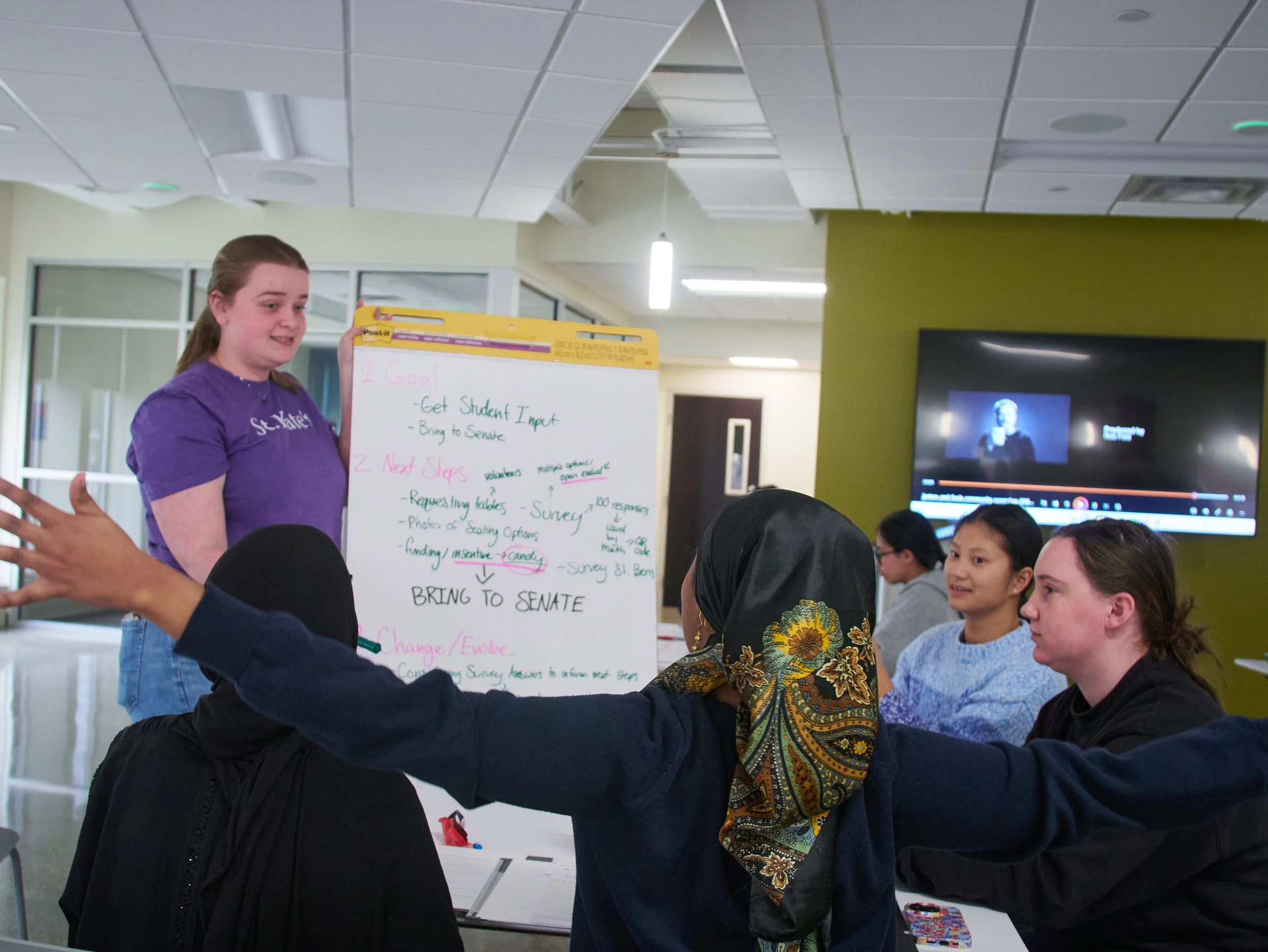Campus Bridging Initiative at St. Ben’s, Day Two
Our day started right off the bat, with a quote by Pauli Murray, “When my brothers try to draw a circle to exclude me, I shall draw a larger circle to include them.” From Pauli, we get a lesson that you can be excluded from being at the table, yet still include everyone yourself. This selflessness was a really influential statement. From that point on, throughout our sessions I was constantly reminded and reflected on my own actions on what I could do to be a role model in my community.
We transitioned into the topic of love and power. What is power without love? What is love without power? Power in democracy can be over us, can be within ourselves and our community, and we have the power to engage with democracy. All of this power without love, however, can be abusive and exploitative. This was a powerful lesson to realize that I am a representative of our democracy, and I have the power to engage and participate with love in my community.
Additionally, I further came away with the lesson that it takes a community to bring change, not just myself. Sometimes I take on a leadership role and decide I can do it all on my own, but I need other people to give me different perspectives as well as different skills I otherwise do not have. I will put this into practice during the duration of the St. Kate's group’s project on advocating for more seating in our outside green spaces on our campus. Our group plans to specifically start our advocacy with talking with the students themselves. Maybe we will find out our community does not have the need for seating, something we otherwise would not have known.
The film screening made me deeply think about why I am personally resistant to engaging in listening to someone with a different stance than me. Why do I not actively seek out to listen to others differently than myself? If I don't put myself in those uncomfortable learning moments, I’ll only be confirming my own biases. From the film I humbly learned that I myself perpetuate polarization on social media. However, social media is not a representation of the people we meet and interact with in real life.
I feel empowered within myself to tackle my own polarization practices and feel ready to take the extra step on issues I care about within my community with the skills I’ve learned from today.
-Samantha Schroeder, St. Catherine University


